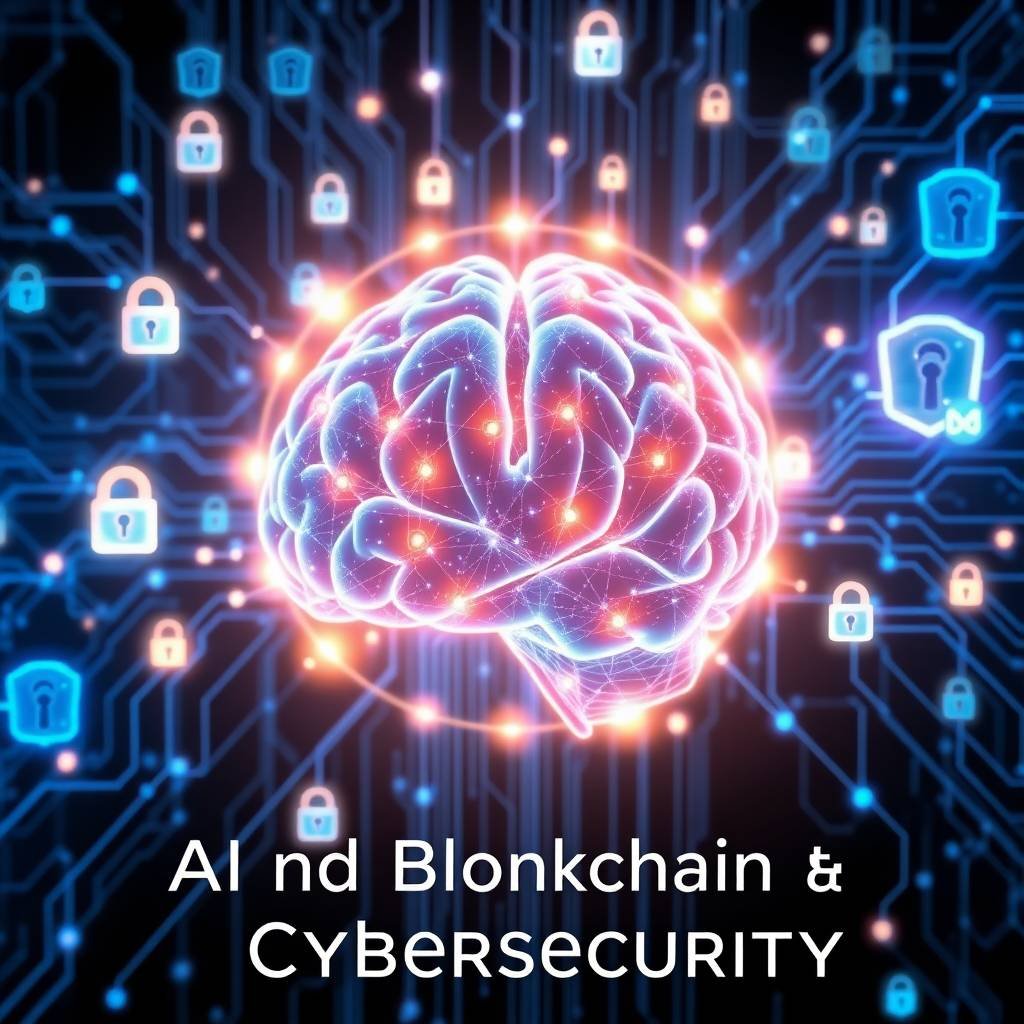In today’s digital landscape, where cyber threats are becoming increasingly sophisticated, the integration of Artificial Intelligence (AI) and blockchain technology is reshaping the realm of cybersecurity. These technologies offer innovative solutions to protect sensitive data and ensure privacy, making them indispensable tools in the fight against cybercrime. By leveraging AI’s ability to analyze data patterns and blockchain’s secure framework, organizations are better equipped to prevent and respond to cyber threats.
The Role of AI in Cybersecurity
AI is playing a transformative role in enhancing cybersecurity measures, thanks to its ability to process and analyze massive datasets with speed and accuracy.
AI-Powered Threat Detection
- Anomaly Detection: AI systems excel at identifying anomalies in network traffic, which are often indicators of potential security breaches. By continuously learning from data, AI can distinguish between normal and suspicious activities.
- Predictive Analysis: By analyzing historical data, AI can predict potential threats and vulnerabilities, allowing organizations to take proactive measures to fortify their defenses.
Automating Responses to Threats
AI can automate the response to certain types of cyber threats, significantly reducing response times. Automated systems can isolate affected areas and neutralize threats before they escalate, minimizing potential damage and ensuring business continuity.
The Impact of Blockchain on Cybersecurity
Blockchain technology offers significant advantages for cybersecurity by providing a secure and decentralized framework for data management.
Enhancing Data Security
- Immutable Ledger: One of blockchain’s key features is its immutable ledger, which ensures that once information is recorded, it cannot be altered. This characteristic is crucial for maintaining data integrity and preventing unauthorized tampering.
- Decentralization: By removing a central point of failure, blockchain reduces the risk of data breaches. Data is distributed across a network, making it more resilient to attacks that typically target centralized systems.
Securing Digital Identities
Blockchain technology can significantly enhance the security of digital identities. With decentralized identity management systems, individuals have greater control over their personal information, reducing the risk of identity theft and ensuring privacy.
Synergy of AI and Blockchain in Cybersecurity
The combination of AI and blockchain creates a powerful synergy that enhances cybersecurity capabilities beyond what each can achieve alone.
AI-Driven Insights on Blockchain
AI can process and analyze vast amounts of blockchain data to identify patterns and anomalies that could indicate security threats. This capability allows organizations to take proactive measures against potential breaches, ensuring that they stay ahead of cybercriminals.
Blockchain Securing AI Models
Blockchain technology can provide a secure framework for AI models by ensuring data integrity and preventing unauthorized access. By using blockchain to store and verify AI algorithms and datasets, organizations can protect their AI models from tampering and ensure they function as intended.
Challenges and Future Prospects
While the integration of AI and blockchain in cybersecurity offers promising solutions, it also presents several challenges that need to be addressed to fully realize their potential.
Overcoming Technical Challenges
One of the primary challenges is scalability. Both AI and blockchain require significant computational resources, which can limit their deployment in certain scenarios. Efforts are underway to improve the scalability of blockchain networks and the efficiency of AI algorithms, making these technologies more accessible and practical for widespread use in cybersecurity.
Regulatory and Ethical Considerations
The use of AI and blockchain in cybersecurity raises important regulatory and ethical issues. Ensuring data privacy, preventing misuse, and developing standards for responsible use are critical areas that require attention. Policymakers and industry leaders must work together to create frameworks that address these concerns while encouraging innovation and adoption.
Future Prospects
Looking ahead, the continuous development of AI and blockchain technologies promises to deliver more advanced and effective cybersecurity solutions. By enhancing their interoperability and addressing existing challenges, these technologies have the potential to create a more secure digital environment, safeguarding against the ever-evolving landscape of cyber threats.
Conclusion
The integration of AI and blockchain in cybersecurity marks a significant evolution in the way we approach digital security. By combining the analytical power of AI with the secure framework of blockchain, we are paving the way for advanced, resilient, and efficient cybersecurity solutions. While challenges remain, particularly in scalability and regulation, the potential benefits are immense. As these technologies continue to evolve, they promise to transform cybersecurity, offering robust protection against the ever-growing landscape of cyber threats. Embracing AI and blockchain not only enhances security measures but also fosters a safer digital future for all.

